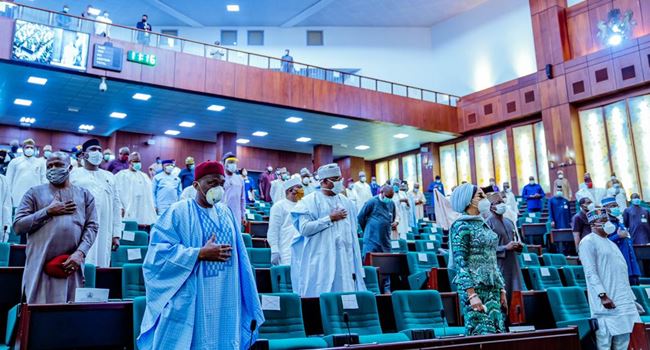News
Reps commence debate on new electoral law

The House of Representatives has kick-started the second reading on a harmonized Bill to amend the Independent National Electoral Commission Act ahead of the 2023 general elections.
The bill was presented at plenary on Tuesday by Rep. Aisha Dukku (APC-Gombe) for debate and passage for third reading among members of the lower chamber.
According to Aisha, the major highlights of the amendments to the Act include the de-emphases on money politics, compulsory usage of card readers in all polls and independent candidacy.
She also added that the bill is necessary to fix Nigeria’s flawed electoral system.
“This amendment has become necessary because of the flaws observed in our electoral system. It’s no longer news that our electoral experiences since 1999 show a strong correlation between an efficient and effective electoral legal framework and the conduct of free, fair, and credible elections.
“In fact, amendments of our electoral laws were long identified as priority legislation by the National Assembly, because of the need to consolidate on the gains of our democratic achievements and to also address the lacuna identified in the electoral legal framework.
READ ALSO: Reps reject allocations to judiciary in 2021 budget
“A typical example is the case of the Kogi Governorship election in 2016, where a leading candidate died after the commencement of polls, but before the declaration of results.
“In addition to this are concerns that the legal framework on certain issues should be well settled ahead of the 2023 elections, such as the use of technological devices like the card reader and electronic voting system.
“Also, criteria for substitution of candidates, disclosure of the source of funds contributed to political parties, replacement of lost or destroyed permanent voters card, the penalty for the possession of fake voters’ card, dates for conducting primary elections, shall not be earlier than 150 days and not later than 120 days before the date of the election, etc.
“The bill, therefore, seeks to address many loopholes in our electoral system by way of amending over 300 clauses (including new provisions) of the Electoral Act 2010,” Aisha said.
This came after the House of Representatives Speaker, Femi Gbajabiamila, assured that the lawmakers would do everything to deliver a policing system that works for all Nigerians.
Gbajabiamila’s assurance came on the heels of the recent EndSARS protest, where Nigerian youths demanded for an end to police brutality and extra-judicial killings of citizens.
Join the conversation
Support Ripples Nigeria, hold up solutions journalism
Balanced, fearless journalism driven by data comes at huge financial costs.
As a media platform, we hold leadership accountable and will not trade the right to press freedom and free speech for a piece of cake.
If you like what we do, and are ready to uphold solutions journalism, kindly donate to the Ripples Nigeria cause.
Your support would help to ensure that citizens and institutions continue to have free access to credible and reliable information for societal development.




















